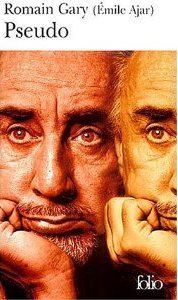What do you think?
Rate this book


224 pages, Pocket Book
First published November 26, 1976
Тази нощ отново имах халюцинации: виждах действителността, която е най-мощният от халюциногениете. Беше непоносимо. В клиниката имам приятел, който е късметлия, защото когато халюцинира, вижда змии, плъхове, ларви, симпатични роботи. Докато аз виждам действителността. Станах, запалих надеждата, за да стане малко по-светло и малко по-истинско. Една кибритена клечка, искам да кажа. Никога не принизявайте. Не запалих електричеството, защото стои запалено непрекъснато, а кибритената клечка бързо угасва и веднага вземам друга, това всеки път вдъхва надежда и облекчава. В една кибритена кутия има петдесет цивилизации, това ви дава петдесет пъти повече надежда, от колкото само едно електричество.
Забравих да ви кажа, че Алиет е много хубава, но знам, че не съм господар на въображението си и ми се случва да видя красотата там, където другите виждат само физически форми. Мъча се да го скрия, защото изпитвам разбираемо вълнение пред изискванията на грозотата.
От момента, когато са ви обявили за луд, към вас се отнасят с добронамереност, защото това не е политическо.
Един ден ще говоря за жените. Но за това трябва да се изчака за да събера в себе си повече нищо и да има наистина място. Един ден ще успея да създам в себе си огромен вакуум и тогава ще мога да дам цялото място. Но книгите имат начало и край, а не бих искал да говоря за жените в нещо, което има начало и край, не бих бил справедлив спрямо тях.
Всички живеят с нож на гърлото и от нож на гърлото - така стои въпросът с храненето.
Най-странното с нихилизма е, че живее от надеждата.
Бях много спокоен. Винаги съм много спокоен, когато изгубя разсъдъка си. Защото тъкмо разсъдъкът ми пречи да бъда спокоен.
Все пак междувременно търся някой, който да не ме разбира и когото аз да не разбирам, защото имам страхотна нужда от братство.
Адвокатът ме гледаше между моите четири очи. Сега имам само две: едно, за да се скрия, и едно за да гледам. Когато съм зле , имам петдесет чифта очи, виждам навсякъде всекидневното и съм тревожен.
Иронията е добра гаранция за умствена хигиена.
Моят изследовател ме погледна с уважение, защото знаеше, че съм решил да взема влака в 8 и 47 - друг нямаше-, който чакаше на гарата, защото Христос беше закъснял, а всеки трябва да знае да чака.
"Тук" е и ще си остане завинаги развенчаната карикатура на едно "другаде".
I am not respecting the chronology or any order or rules in this document, because I've read enough detective fiction to know that a proper structure can bring the cops right to your door--and let me leave you in no doubt, that is not why I've holed up in Dr. Christianssen's clinic in Copenhagen.
As soon as my first mythical book appeared people began to observe that I did not really exist and that I was therefor probably a fiction. The even assumed I was a collective.
It's true. I am a collective work, but I can't tell you whether it was premeditated. On the face of it, I don't consider I have enough talent to imagine that there could have been syphilis aforethought or anything of that kind solely in order to squeeze a literary trifle out of me. There could have been, of course, because you don't look a gift horse, but I can't be sure
Subject writes under the pen name of Ajar, pronounced "Azher," meaning "most brilliant" in Arabic, revealing masochistic vulnerability which the subject probably cultivates on purpose as a potent source of literary inspiration.
That's wrong. They're all bastards. I wrote my books in various hospitals on doctor's advice. They said it would be therapeutic. They suggested painting first, but that was a bummer.
Since I knew I was fictional, I thought I might have a talent for fiction.
"I am not ambiguous. I am congenital and that means heave and heave-ho to get away from my authors. Genetics is quite enough as far as the ineluctable is concerned. Didn't you see in the papers that I'm a collective work.?"